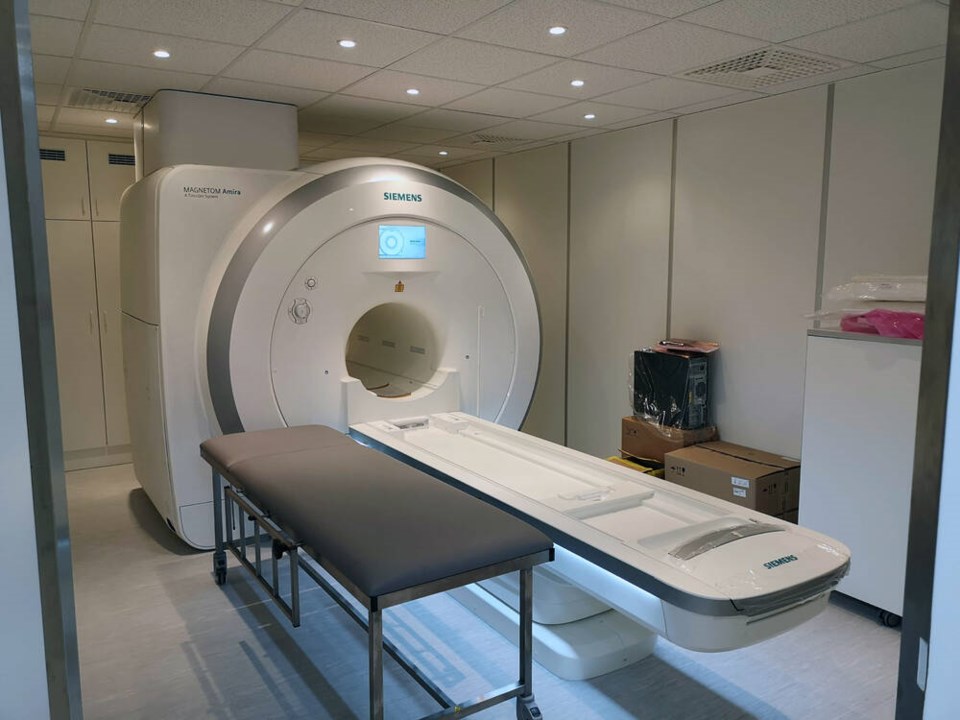West Coast Medical Imaging in Victoria has stopped providing private-pay MRIs after a warning from the Medical Services Commission, which manages the Medical Services Plan for the B.C. government and ensures compliance with the Canada Health Act.
The Uptown clinic, which offers publicly funded diagnostic imaging, including X-rays, mammograms and ultrasounds, had also been offering private-pay options for magnetic resonance imaging (MRI).
But the Medical Services Commission has requested that all community imaging clinics approved to bill MSP for outpatient diagnostic services cease charging for medically necessary MRIs because it is in contravention of the Medicare Protection Act. As of February, there were 13 privately owned clinics in B.C. providing private pay MRI services, three of which are approved to bill the Medical Services Plan.
The Medical Services Commission sent letters to those three facilities, including West Coast Medical Imaging, on Oct. 16 asking them to stop providing private-pay MRIs. The Health Ministry and Medical Services Commission have not confirmed the names of the other two facilities, which are not part of West Coast Medical Imaging.
Charging patients for medically necessary services is considered extra billing.
West Coast Medical Imaging regional manager Allen Lavoie said of the company’s approximate 20 locations only its Uptown location has an MRI machine. The company immediately complied with the commission’s request, he said.
“We are compliant and hope to collaborate with the Ministry of Health and Island Health to continue providing MRI services in order to alleviate the wait times for MRI patients in Victoria and surrounding regions,” said Lavoie.
Last year in B.C., the median wait time for an MRI scan was 50 days after a requisition was received. Half of all patients waited 50 days, while one in 10 waited 139 days, according to the Canadian Institute for Heath Information .
B.C. Health Minister Adrian Dix, during a news conference Friday, said the province has “shattered every record for diagnostic testing in B.C. for MRIs and CT scans in the last number of years” although there remains significant demand.
While the Medical Services Commission is independent, he said he supports their work. “They are doing exactly what they should be doing which is ensuring the law is enforced so that patients are given protection and support.”
West Coast Medical Imaging in Victoria will continue to perform MRIs for third-party contract groups, including WorkSafeBC.
The Medical Services Commission has previously sought injunctions against clinics or companies that appear to be contravening the Medicare Protection Act by extra billing.
In December 2022, the commission applied for an injunction to stop Telus’s LifePlus program from charging annual membership fees starting at $4,650 to patients in return for preferential 24/7 access to a health-care practitioner.
Dix asked the commission in February 2022 to review private fee-based services offered by Telus Health Care Centres to ensure there was no priority access for patients who paid the fee, which isn’t allowed under the Canada Health Act.
“Access to necessary medical care should be based [on] needs and not on an individual’s ability to pay,” said Dix.
In April, an out-of-court settlement between the Medical Services Commission and Telus Health was announced, suspending the commission’s injunction application. The company said its program would be modified to ensure a clearer delineation between insured and uninsured care delivery.
Around the same, Beta Therapeutics in Saanich dropped its membership fee. Its physician had de-enrolled from MSP to allow that clinic to charge fees.
According to the Canada Health Act, charging a patient for an insured benefit is prohibited. Diagnostic services such as MRI and CT scans are insured benefits when delivered in a diagnostic facility approved by the commission.
The Canada Health Act requires provinces to submit a report to Health Canada each year detailing the amount of extra billing in the province for medically necessary services, including diagnostic services.
That extra billing is deducted, dollar-for-dollar, from the province’s Canada Health Transfer payment.
In 2019, the Health Ministry said extra billing cost the province $32 million in lost federal health-care transfer payments.
B.C. recently signed a $1.2-billion health deal over three years with Ottawa, with the money earmarked for hiring more nurses and doctors and reducing waiting times for diagnostic imaging and medical treatments.
>>> To comment on this article, write a letter to the editor: [email protected]



